Horse Racing Betting Sites & Offers
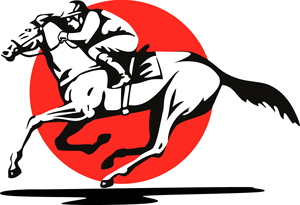 Horse Racing is responsible for pumping nearly £5 billion into the UK economy each year and is estimated to employ over 100,000 people, whether directly or indirectly. In Britain we have up to around 7000 thoroughbred horse owners and that race in 10,000 races each year, equating to about 100,000 runners.
Horse Racing is responsible for pumping nearly £5 billion into the UK economy each year and is estimated to employ over 100,000 people, whether directly or indirectly. In Britain we have up to around 7000 thoroughbred horse owners and that race in 10,000 races each year, equating to about 100,000 runners.
Each year in the UK alone it is said 7 million people attend race meetings and over 400 million people globally. As a consequence every betting site worth their salt provide horse racing markets and more importantly horse racing offers – 12 million people placed horse racing bets last year in the UK, higher than any other sports market. The money floating around in this industry means you are seriously never short of a deal, especially for big meetings and races.
In this guide you won’t find gimmicky temporary deals, rather we only list horse racing promotions that add proper value to horse racing bets in the long term. Further down we also discuss the best racing bookies sites along with a guide to betting on horse racing. For high profile race meetings through the year we also list short term offers our horse racing events pages.
All offers discussed on this page are open to all customers. Visit our Free Bets page for high value introductory offers for any event specific enhanced odds sign up promotions visit our home page. The very latest offers are listed below and detailed regular offers can be found below.
Major Meetings, Races and Festivals

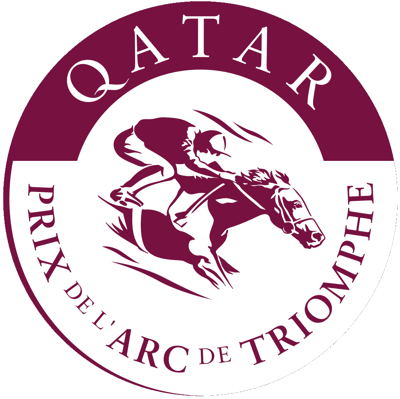





Featured Racing Deals

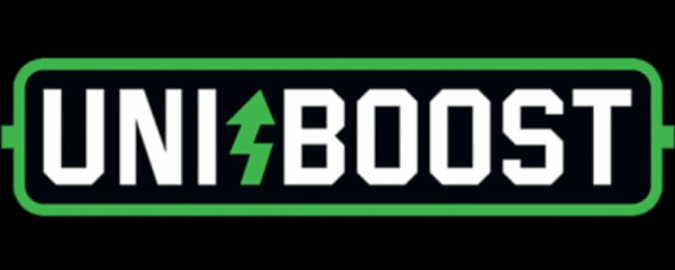
If you bet on any horse racing, greyhound racing and harness / trotting single markets with Unibet they will give you a an odds boost on stakes up to £20, on up to three bets each and every day. There is no minimum bet and all winnings and extra winnings are cash, the boost can be applied from the betslip.
Uniboosts are only available as single bets; multiples are ineligible, you are not able to be used in conjunction with freebet tokens / balances.
This is a great offer if you are likely to bet on horse and greyhound races anyway, especially for non-elite racing where it is rare to find offers. Uniboosts refresh at midnight each day.
Best Odds Guaranteed & Live Streaming Bookmakers
Featured Horse Racing Promotions
UK and Irish horse racing broadcast on ITV or ITV4 attracts the very best betting offers from risk free bets for winners to money back if your horse loses. if you are betting on any live racing don’t just place your wagers with any old bookie, take a look at our ITV racing offers page to find some hugely valuable deals that will seriously add to your winnings over time.
Horse Racing Free Bets and Bonuses

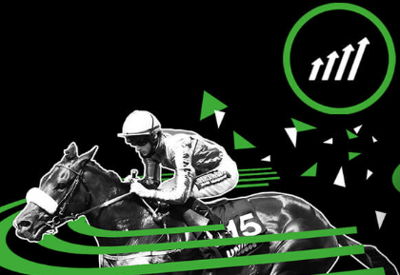
Unibet don't just offer an acca bonus for racing they allow eligible customers to claim a bonus up to three times each day. The bonus applies to accas with 3+ legs and is tiered from 10% (3-legs) to 40% (7+ legs). Maximum stake is £20 and it only applies to win bets or the win part of an each-way bet. BOG will not apply and you can't use it for future or special bets, only racing on the day.
The offer applies to both horse and greyhound racing and all winnings and extra winnings are cash with no maximum boost winnings limit. 18+, BeGambleAware.org.

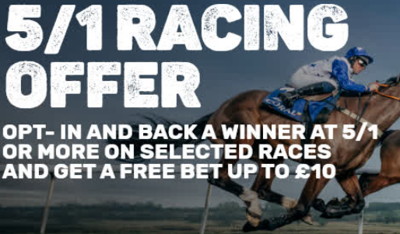
Coral are synonymous with horse racing and I think in their existence they have always had some form of added value offer for punters. The latest is the 5/1 racing offer for ITV and select other races.
First opt-in and back a 5/1+ winner in any eligible race, £1+ stake, and if the horse wins at 5/1 or more get a stake matched free bet up to £10 on top of your normal cash winnings.
Opt-in and back a winner at 5/1 or more on selected races and get a free bet up to £10. 18+. UK & ROI customers. Available on all ITV races & All UK/lrish Sunday Races from 07:30am on 26.08.2023. First real money single win or win part of e/w bets qualify. Opt-in Req. Min bet £/€1. Min Odds 5/1. If horse wins at 5/1 or greater customer receives a free bet up to £10 to be used on Horse Racing only, credited within 24 hours, valid for 7 days. Restrictions + T&Cs apply. .


Betfred owner Fred Done invented the Lucky 15 in the 1970’s and to this day the bookie are still the place to go for Lucky 15, 31 and 63 bets on horse racing.
Should you get your lucky bet all correct then as standard you will get an unlimited cash bonus of 10% for a Lucky 15 or Yankee, 20% for a Lucky 31 or Canadian and 25% for a Lucky 63 or Heinz bet. Back an all correct Lucky from Betfred’s listed Super Bonus Races and those bonus amounts jump to 15%, 50% and 100% respectively.
If your bet goes the other way and you only got one selection correct then Betfred will give your 3x the odds on that pick for a Lucky 15, 4x for a Lucky 31 and 5x for a Lucky 63. These offers also apply to greyhound racing. The offer is also available from sister brand Totesport.

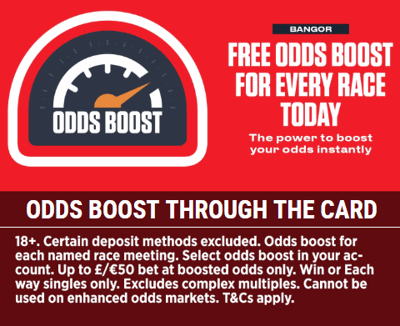
This fantastic promotion from Ladbrokes allows you to pick one horse in each race at a selected daily meeting and boost your own odds.
This applies to stakes up to £50 with all winnings in cash. You don’t need to rely on finding price boosts or searching endlessly for the best odds, Ladbrokes give you the choice what prices you boost. This is in addition to their standard odds boost that lets you boost any bet you like once per day.
Horse Racing Money Back and Insurance Offers

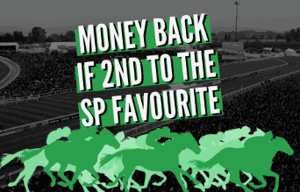
One of Ireland's newest bookies have a different attitude with the motto 'fairer way to bet'. This seems to carry some weight too as the bookmaker have a suite of racing offers that cover all racing that can add some good longer term value to regular racing punters.
The stand out offer is their money back second to the starting price favourite, in all races, every day. To qualify the race must have over 6 runners and the SP favourite odds must be above 6/4.
Stake refunds are awarded as a free bet token with a one week expiry time, it can be used on any sports as long as the price of the wager is over 1/2.


10Bet are very reliable for daily racing offers, whatever the season. During the flat season over the summer in the UK and Ireland you can get your stake back as a free bet up to £10 if your horse is second to the starting price favourite in one meeting each day.
During the jumps season get faller insurance for all races (mobile only) in one selected meeting each day, again up to £10. Free tokens are valid for a week and can be used on any horse racing at odds between evens and 7/1. 10Bet cover all the top level meetings making these good offers if you are likely to place small win bets on these races any way.

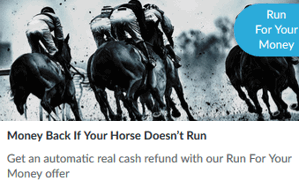
This insurance isn’t really an offer at all, rather it is one of the best and most reliable features from a very honest and professional bookie.
With most betting sites once your horse has come under starters orders it is classed as a runner and should for any reason your horse loses all chance before it gets going you would simply lose your stake. With BetVictor however you will get your stake back in cash, to any amount, including all markets, if this happens.
Should the horse whip around, fail to come out or basically lose all chance at the start then you will get a refund. There is no gimmick attached to this, it is simply a good deal from a top racing site. The feature is applicable to all UK and Irish racing.

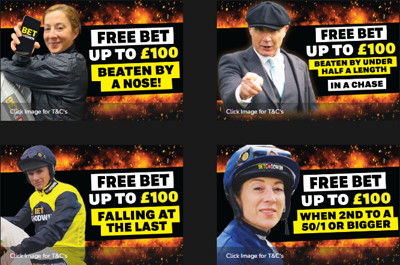
BetGoodwin is a brand born out of horse racing, racing is its main niche and all of the offers are focused on horse racing. Rather than cover any specific racing insurance offer it is easier to tell you the type of offers you will find here. The main thing to note is these tend to offer up to £100 in free bets, much higher than other brands, but they start at £10 stakes making them applicable to a wide range of punters.
The insurance offers give you your stake back as a free bet if you bet £10+ or £10+ each-way. They can vary but will include things like:
- Free bet if beaten by a nose
- Free bet if beaten by under half a length in chases
- Free bet if you horse falls at the last
- Free bet if 2nd to a 50/1+ winner
While Betgoodwin offer a full sportsbook it is obvious what they care most about. If you are a regular racing punter it is a site to look at certainly as the insurance offers can add value over time.
Free Jackpots and Predictions


Racing Super Series is a free prediction game for horse racing from Coral. UK&IRE customers can play once per week for free by selecting 7 horses to place in 7 races (usually Saturday ITV races). The minimum guaranteed prize fund is £25,000 with Coral then adding £1 to the pot of every entry made into the game. The cash prize pool is split between all winning customers.
Entries can be made from 8am Friday until the official start time of the first race, entries made after this time are ineligible. If your horse does not run you will be given the SP favourite. Here you are predicting horses to place not necessarily win, backing favourites is safer but also makes it more likely the pot will be split. Unlike other similar games Coral's provides a full race card with details about the race, conditions and form of the horses with previews.
Standard racing rules and payment method restrictions apply.


The 6 horses challenge free to play game from bet365 is open to all eligible new and existing customers. Select a horse in each of the selected races, this is usually a big meeting.
Get 6/6 correct and you can win or share £100,000 in cash. 5/6 you can win or share £25,000 and 4/6 win or share £10,000.
The prize value displayed for six winning selections is the maximum available based on a single winner in that round and will be reduced in the event of a shared prize-pool. New and eligible customers only. T&Cs apply. 18+, registration required, begambleaware.org. Available to players in the UK and Ireland.

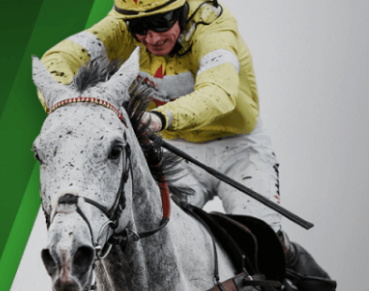
If you bet on any ITV race on a Saturday with Unibet, within 15 minutes of the race start time, and your horse wins, they will give you a stake matched free bet up to £20. You can claim this in up to nine races:
Minimum stake to qualify is £5 and the minimum odds for a selection is Evens (2.0). If you place an each way bet only the win component of the wager will be matched. The free token can be claimed in all races and will be awarded within 24 hours and can be used on any racing win singles or each-way bets.
This is a great offer if you think you would bet on these races anyway for horses with a price above evens. You could earn up to £180 in free bets over the 9 races.
Best Horse Racing Bookmakers
Bet365
The horse racing selection at 365 is outstanding, especially for racing outside the UK. They support this with a range of concessions and features that make them the best.Betfred
Best for Lucky and full cover bets, bonus offers, money back second flat season, faller insurance jump season. Traditional racing bookie.BetVictor
Better places than anyone for biggest races, unique markets such as lengthen the odds. Fairest terms, e.g. money back horse doesn’t run.Coral
Best faller insurance in jump season then beaten by length flat season. Top notch streaming, news, stats , features and huge range of daily markets.Ladbrokes
Daily price boosts and extra places, you will always find a deal with Laddies. Huge range of stats, lines, features, news and streams for horse racingHorse Racing Betting Guide
Non-Runners and Disqualification
 Horses fail to start the race all the time for many reasons, including last minute injuries, jockeys failing to turn up, indeed horses failing to turn up, overweight, underweight, disqualification, etc.
Horses fail to start the race all the time for many reasons, including last minute injuries, jockeys failing to turn up, indeed horses failing to turn up, overweight, underweight, disqualification, etc.
This of course can have an impact on your bet if you’ve backed a non-runner. If you bet on the day of the race, once early prices have been released (generally around 9am) and your horse doesn’t run then you will get your stake back, in cash.
If, however, you’ve backed a horse ante-post (more than one day before the race) it is highly likely your bet will not be returned. Not all bookmakers will do this, and for the biggest races (e.g. Grand National) many do offer non-runner no bet on ante-post markets. It really is worth checking however as dropout rates can sometimes exceed 5% or more.
Ante-Post
Given the fact that many bookies will not pay you out for non-runners with ante-post betting what is the point of placing them? Well it is about weighing up the market. Backing a horse very early, before much money has been staked, means you can sometimes get much better odds than waiting for the day itself. It is up to you to balance the chances of that horse not running with the potential gain in price.
Ante-Post bets also generally do not qualify for best odds guarantees, so if the price goes the wrong way and the starting price is higher you won’t get that better price.
Starters Orders
Once a horse comes under starters orders (this means they are in the stalls or at the start line) then your bet is now live. This means if for some reason your horse now fails to start, whips around or refuses to run you have in effect lost your bet.
There are however some bookies, such as BetVictor, that have offers such as ‘Run for your Money’, they will refund your stakes if this happens and so for regular racing punters betting with someone like this will pay off over time.
Stewards Decision
The race steward will make the final decision on the winner of a race and on any disqualifications. All bookmakers adhere to these rulings, so if the race steward says the winner is disqualified then the bookie will have to pay you out on the second place and places will be adjusted.
Some of the better betting sites will payout on both the original winner and the winner following a steward’s enquiry. For long term racing value, it really pays off to bet with someone who provide favourable terms like this.
Rule 4
| Odds of Non-Runner | Percentage Deduction | Pence in £ |
|---|---|---|
| 1/9 or lower | 90% | £0.90 |
| 2/11 – 2/17 | 85% | £0.85 |
| 1/4 – 1/5 | 80% | £0.80 |
| 3/10 – 2/7 | 75% | £0.75 |
| 2/5 – 1/3 | 70% | £0.70 |
| 8/15 – 4/9 | 65% | £0.65 |
| 8/13 – 4/7 | 60% | £0.60 |
| 4/5 – 4/6 | 55% | £0.55 |
| 20/21 – 5/6 | 50% | £0.50 |
| 1/1 (Evens) – 6/5 | 45% | £0.45 |
| 5/4 – 6/4 | 40% | £0.40 |
| 8/5 – 7/4 | 35% | £0.35 |
| 9/5 – 9/4 | 30% | £0.30 |
| 12/5 – 3/1 | 25% | £0.25 |
| 16/5 – 4/1 | 20% | £0.20 |
| 9/2 – 11/2 | 15% | £0.15 |
| 6/1 – 9/1 | 10% | £0.10 |
| 10/1 – 14/1 | 5% | £0.05 |
| 14/1 or higher | 0% | £0.00 |
Rule 4 is a very old rule designed to give a standardised means of adjusting odds prices if horses do not run. This is part of a set of rules (12 in total) that govern how bookmakers should treat bets when various circumstances happen.
Obviously when pricing a horse in a race the odds are relative to the chances of winning, which in turn related to the size of the field and the quality of the other horses in the race. If the odds on favourite pulls out of a race and you’ve backed a 10/1 outsider for example, then it stands to reason that this horse now has a greater chance of winning than the 10/1 you were given. Rule 4 therefore is used to reduce the odds of the remaining horses in the field to reflect the new likelihood of a win.
The lower the odds on the horse that pulls out the higher the level of deduction on the rest of the field. If an out and out favourite pulls out, at odds of 1/9 or lower, then the payout on all other horses in the race will be reduced by 90% or 90p in the pound. This rate then decreases (see table), with a 10/1 withdrawn horse resulting in just a 5%, or 5p in the pound reduction. Any horse that withdraws from a race with odds over 14/1 will have no effect on the other odds.
Some bookmakers have done away with the 5p rule (Ladbrokes for example). This means if a horse between 10/1 – 14/1 withdraws from the field then your odds will not change. On balance, for regular punters, it makes sense to bet with a bookie like this.
If multiple horses withdraw from a race the Rule 4 effect is cumulative up to a maximum deduction of 90%. Rule 4 only applies up to starters orders. If a horse comes under order but then doesn’t run the race your odds will stay at the original level.
If you have taken a money back offer and the race comes under Rule 4 terms the stake itself returned to you will not be reduced.
Payout Levels
The maximum you can win on a horse race varies between bookmakers, and within this varies between the grade or class of race. The example below is from a high limits bookmaker, renowned as the highest payers in the industry:
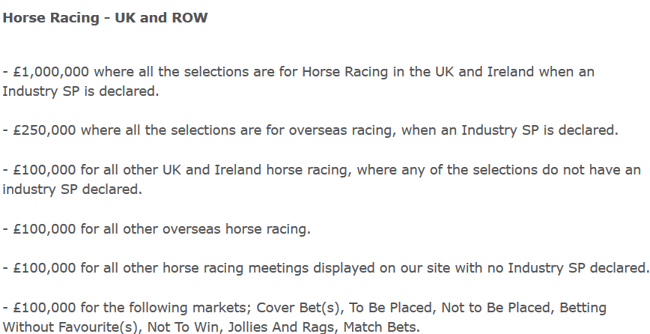
Top class 1, group 1 or grade 1 flat and jump racing carry the highest payouts, up to a few million with the bigger operators. The lower the classification the lower the payment cap in general and some lower class or amateur racing can have limit as low as £1000 payouts. Something to beware of if you are a big bettor or like to go for outsiders in low classification races.
This also applies to foreign races, when betting on racing outside the UK and Ireland it is worth checking the terms and conditions as bookies vary wildly. A good option for international racing is a specialist such as Betfred, who have the most markets and generally the best terms.
Starting Price vs Fixed Odds
Is it better to take the starting price (SP) or the odds offered at the time of placing a bet? With almost all top bookmakers now providing best odds guarantees it makes sense, if betting on the day, to always take the fixed odds.
Best price guarantees mean that if you back a horse, on the day after early prices are issued, and the SP is higher than you will automatically be given that higher price. Of course, of the SP is lower you retain your originally higher fixed odds. In this scenario, it really is worth always taking the price given when placing the bet.
If you are not betting with a best odds guaranteed bookie, then you really should be. A list of those who offer the feature can be found further up this page.
Tote and Totepool Betting
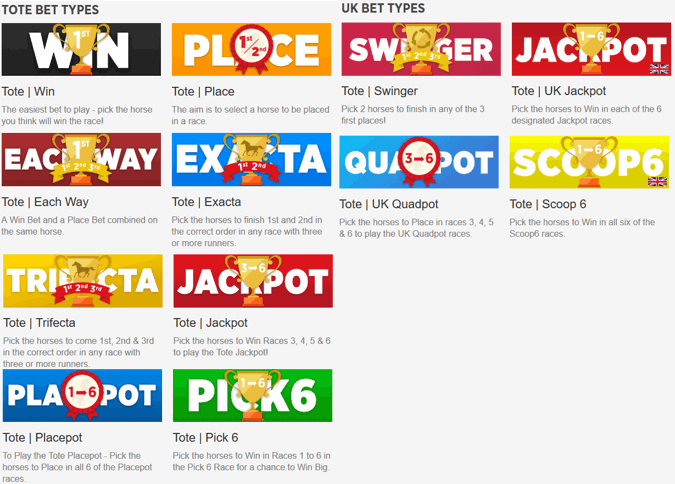
Tote is a type of pari-mutual bet, this means instead of betting against a bookie directly you are betting against your peers to win a pot of money.
The size of your winnings is dependent on the overall amount of money bet on the race divided by the number of people who bet on that outcome. This can often result in higher comparative odds against the standard fixed price.
Totepool bets are special types of tote bets that require you to predict several permutations. For example, Scoop6 is a popular Totepool jackpot where you must pick the winner of 6 selected races. If you win the jackpot can often be 6 or 7 figures.
The Tote used to be run by the British government has been owned previously by Betfred. The bookie licences out many tote and totepool bets to other bookmakers but on balance Betfred is the best place to place these bet types. Betfred offer bespoke offers and jackpots for totepool that others do not provide.
The nature of tote betting means these bet types rarely count towards offer terms for free bets, money back or bonuses, especially sign up offers. Check the terms carefully if betting on the tote in connection to an offer.
Major Horse Racing Promotions and Terms
Faller Insurance
Mainly offered for National Hunt jump races in the UK and Ireland, faller insurance gives you your stake back should your horse fall during a race. This occurs very often and, roughly 1 in 20 horses will fall in a jump race (varying depending on course, grade, conditions, etc.), and so again regular racing punters could get a lot of value from an offer like this.
Punters will get their stake back (generally up to £25) if their horse falls (anywhere, not just at a fence), is brought down by another horse or unseats its jockey (even if the horse itself doesn’t fall).
Available from the likes of Coral for all the biggest meetings this is a great promotion if used well. Stakes are usually returned as a free bet or sometimes as a bonus, not as cash.
Length/Head/Nose Money Back
Money back if beaten by a set distance offers generally apply to flat racing (although some apply year round) and usually replace faller insurance when the season changes from jump to flat in the Spring each year.
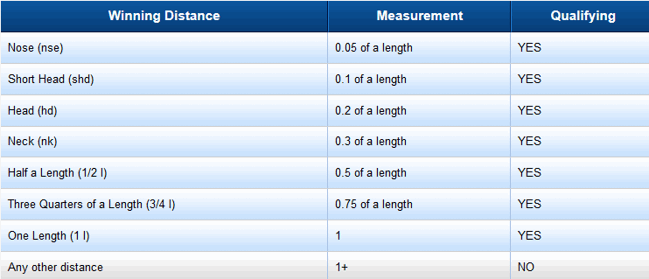
With flat races contested over shorter distances than jump races (as little as 5 furlongs, just over half a mile), these offers can be very useful to punters. Beaten by a head or nose deals can often be found covering all flat racing, whereas beaten by a length deals are applies generally to selected meetings. Coral are a good bookmaker for beaten by a length offers.
Again money back is usually up to £25 and refunded as a free bet or bonus, rarely in cash. These offers also only apply if your horse is beaten in second pale. If second and third place both lose by less than a length you will only get your money back on the second placed horse. See the table above for information on how distances are qualified.
Money Back Second & Money Back if you Lose
There are more money back second and second to the favourite offers now than ever before. They do what they say on the tin, if you back a horse to win in a qualifying race and it finishes second (or second to the SP favourite) you will get your stake back, usually up to £25, as a free bet or bonus.
These deals are often available daily from the likes of Paddy Power, Betfred, 10Bet and Boylesports and will apply usually to the major meeting, or race, of the day.
Some bookies, such as Paddy Power, run money back second, third and sometimes fourth for big races and on occasion (for the bigger televised races) will run money back if you lose. Obviously these offers are crazy and should be taken advantage of when available.
Free Bets for Winners
By far the most popular regular horse racing offer are free bets for winners. These come in several formats but are generally available for ITV and ITV4 racing.
Back a horse with minimum odds (usually 3/1+ or 4/1+) in a qualifying TV or feature race, and if it wins get a stake matched free bet in the next race. The value of these deals are obvious.
Betfair, bet365, 888 Sport and others have been known to run this promotion and usually these deals run for a long time, meaning you can rely on them for televised racing.
Horse Racing History, Rules & Major Meetings
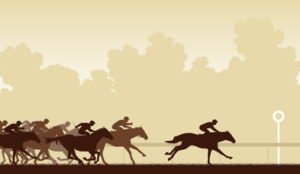 Throughout history, there have been so many moments when a sport has been invented simply because of someone’s competitive nature. From the first time someone kicked a ball and shouted ‘Goal!’ through to the time someone pulled up next to someone else at some traffic lights and decided that they could beat them to the next marker point, the competitiveness that is in-built in the vast majority of us has seen the creation of so many glorious pastimes. Some of them have been developed and changed almost beyond all recognition now, with ice hockey being an example of something that likely started on a frozen lake and grew to become a huge sport in its own right. Others have seen the equipment develop but the sport itself remain close to how it originated, with darts being a prime example.
Throughout history, there have been so many moments when a sport has been invented simply because of someone’s competitive nature. From the first time someone kicked a ball and shouted ‘Goal!’ through to the time someone pulled up next to someone else at some traffic lights and decided that they could beat them to the next marker point, the competitiveness that is in-built in the vast majority of us has seen the creation of so many glorious pastimes. Some of them have been developed and changed almost beyond all recognition now, with ice hockey being an example of something that likely started on a frozen lake and grew to become a huge sport in its own right. Others have seen the equipment develop but the sport itself remain close to how it originated, with darts being a prime example.
When it comes to horse racing, though, you’re talking about an event that has barely changed from the moment it was first conceived. It is the purest version of a sport that will look similar now to when it was watched by royalty hundreds of years ago. Its moniker of ‘the Sport of Kings’ isn’t just something that sounds fun, it’s because monarchs from countless countries have long been fascinated with the simple battle of wills that takes place on racecourses up and down the country throughout the year. Perhaps you’ve always had a flutter on the Grand National or the Cheltenham Festival but realised that you don’t really know much about the sport away from those blue riband events. Maybe you’ve never really placed a bet before and would like to know more about the sport before you get too heavily involved. Whatever the reason you’re here, hopefully you’ll feel your knowledge has increased by the end of this piece.
History Of Horse Racing
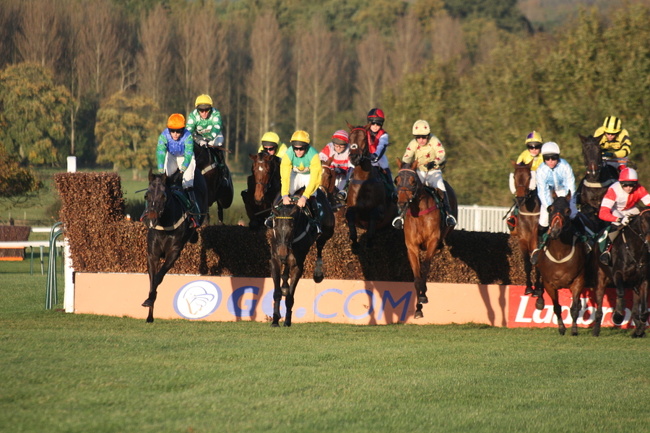
When it comes to discussing the history of horse racing, we need to distinguish between whether or not we mean the history of the sport since it was first ever introduced or whether we’re talking about its history in the United Kingdom. The reason the distinction is important is that horse racing as an idea was used by the Central Asian nomadic tribesmen who saw it as a way to domesticate the animals, ‘breaking’ them for use as an amusement before taking them into battle. That’s obviously far more difficult for us to trace with any degree of accuracy, but it’s important to note that the racing of horses has taken place in numerous civilisations around the world for hundreds and hundreds of years. It’s slightly easier, therefore, to look at the history of horse racing purely in Great Britain and Northern Ireland.
When it comes to looking at that side of the sport, we can trace its origins back to the return of the Knights of the Crusade from the Eastern Mediterranean in the twelfth century. They brought back with them the Arabian horses that they’d been riding in battle, mating them with English horses and, as a consequence, producing Thoroughbred horse that went on to form the basis of the best horses that run in races today. The first ever venue for races similar to how we know of them today was Newmarket, where King Charles the Second would offer prizes for the winners of races between two horses on a private field. Though it’s known as the ‘Sport of Kings’, it was actually Queen Anne who popularised it, founding Ascot in 1711 and inviting an audience to come and watch.
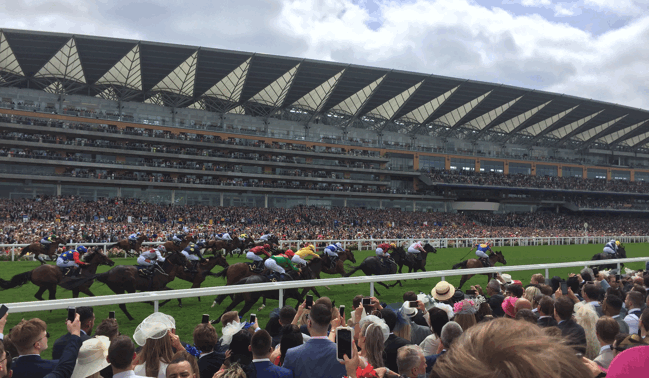
That audience would take bets on the outcome of the races, leading to the sport becoming professional and the founding of the Jockey Club at Newmarket in 1750. The Jockey Club decided to make the sport of horse racing more formal, devising rules that racecourses began to implement. In 1814 the ‘Classics’ were founded, which were for five-year-olds and included the ‘Triple Crown’ of the 2000 Guineas, The Epsom Derby and The St Ledger. Both colts and fillies could take part in those races, with the 1,000 Guineas and the Epsom Oaks rounding off the Classics and only being open to fillies. That was also the time when being able to trace the pedigree of a horse became important, with James Weatherby being tasked with the job of compiling a family history for all horses in the UK.
If you’re interested in such things, Weatherby have recorded the information of every foal born in the UK since 1793, noting that three stallions named Byerley Turk, Darley Arabian and Godolphin Arabian are responsible for having been the basis for every pedigree thoroughbred in the country. The information is contained in the General Stud Book, should that be something that you’re keen to read more about. Though the Jockey Club remains responsible for regulating both traditional horse racing and point-to-point even today, the job of governing the sport falls to the British Horseracing Board, which was established in 1993. You can look back to 1866 for the for the formation of the The National Hunt Committee, too.
Rules of Horse Racing
In its simplest form, horse racing is a sport that has a name that tells you everything that you need to know. Horses race from one point to another, with the horse that comes in first being declared as the winner. As is so often the case, however, little in the sport can be described as ‘simple’.
There are countless things that can can make one race different from another, including complex decisions such as how old the competing horse must be, what sex the competitors are and whether or not they’re allowed to have won a competitive race before the season began. That’s without even mentioning the likes of the relative rating of the horse, how much weight it carries and the experience of the jockey that is riding it. In essence, though, there are two different types of race, as explained here:
Jump Racing
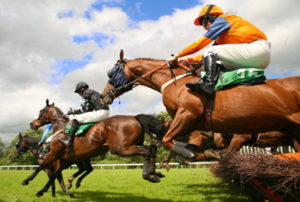 The sport of jump racing involves horses having to negotiate different types of obstacles in order to reach the end of the course and be declared the winner. Should the horse fall over or unseat the jockey, they won’t be able to complete the race. The types of obstacles that horses are confronted with will depend on the type of racing taking place. Sometimes they will come up against hurdles, which are smaller and more forgiving obstacles that need to be jumped but are unlikely to cause a strong horse any major problems if they fail to clear them completely. Other times they will be fences, which are usually much thicker and more troublesome than hurdles. In a race such as the Grand National, there are a whole host of different fences including some that have water in front of them and some that have a landing point which is lower than the taking off point.
The sport of jump racing involves horses having to negotiate different types of obstacles in order to reach the end of the course and be declared the winner. Should the horse fall over or unseat the jockey, they won’t be able to complete the race. The types of obstacles that horses are confronted with will depend on the type of racing taking place. Sometimes they will come up against hurdles, which are smaller and more forgiving obstacles that need to be jumped but are unlikely to cause a strong horse any major problems if they fail to clear them completely. Other times they will be fences, which are usually much thicker and more troublesome than hurdles. In a race such as the Grand National, there are a whole host of different fences including some that have water in front of them and some that have a landing point which is lower than the taking off point.
You may sometimes see horse racing referred to as ‘National Hunt racing’, because it is organised by the National Hunt and covers a myriad of different race types. There are, for example, races that are known as ‘bumpers’ that are raced over the flat, but are not classified as part of flat racing. The names given to the type of race will tell you everything you need to know, given that those featuring hurdles are known as Hurdle Races and those that have fences are called Steeplechases. Jump racing usually takes place between August and April, when the ground is generally a bit softer and so both jockeys and their horses are less likely to suffer serious injury when landing or falling. The races are split into categories depending on their importance, with Grade 1 races being at the top of the pile.
Flat Racing
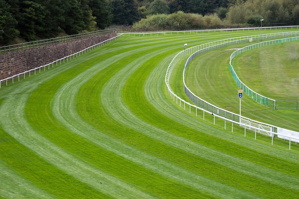 As mentioned before, horse racing is a sport in which the title of things tells you a decent chunk of the information that you need. In this case, the more sensible amongst you will have already identified that flat racing takes place on the flat and doesn’t have any obstacles for horses to jump over. Plenty of people see this as the more ‘pure’ form of the sport, given that the only things that will affect a horse’s ability to win are their own stamina and speed and the jockey’s ability to guide them around the course successfully. Just as many people see this as a ‘boring’ variation of the sport, of course, given that the lack of fences means that there’s less chance of an upset.
As mentioned before, horse racing is a sport in which the title of things tells you a decent chunk of the information that you need. In this case, the more sensible amongst you will have already identified that flat racing takes place on the flat and doesn’t have any obstacles for horses to jump over. Plenty of people see this as the more ‘pure’ form of the sport, given that the only things that will affect a horse’s ability to win are their own stamina and speed and the jockey’s ability to guide them around the course successfully. Just as many people see this as a ‘boring’ variation of the sport, of course, given that the lack of fences means that there’s less chance of an upset.
Because of the nature of flat racing, the horses that take part in it are usually much younger than those that are raced in jump racing events. There are short races of about five furlongs, known as Sprints, and longer ones of more than two miles, which are known as Stayers. As with jump racing events, they’re classified into different categories depending on the importance of the race. The major difference between the two sports, other than the obstacles, obviously, is that flat races can be run on numerous different types of ground. As well as turf, there are also all-weather surfaces, which are made of synthetic materials.
Major Horse Race Meetings
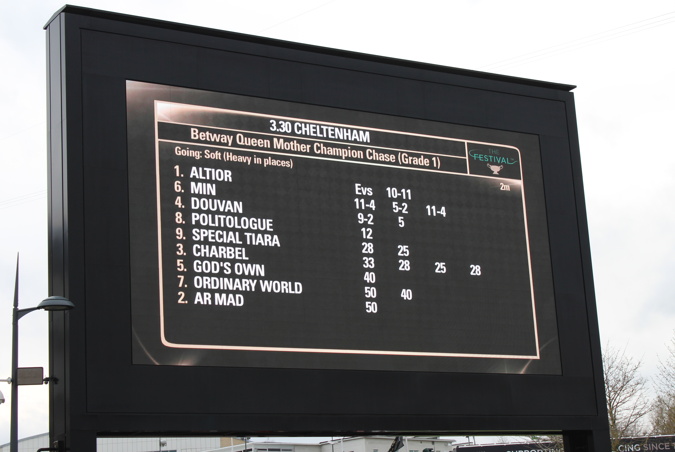
As you might expect, horse racing is one of the most popular sports to bet on. It’s also immensely popular with spectators, leading to numerous different competitions being formed over the years. Here’s a quick look at each of them, but because there are so many we’ll keep the information relatively short:
- Cheltenham Festival – Taking place every March over four days, the Cheltenham Festival features some of the most famous races in horse racing. The meeting culminates in the Gold Cup, held on the Friday and watched by millions around the world.
- Aintree Grand National Festival – The Grand National is arguably the most famous steeplechase in racing. What many people don’t necessarily realise, however, is that the race is just one part of a three day meeting held at the Aintree Racecourse on the outskirts of Liverpool.
- Newmarket 1000 & 2000 Guineas Festival – Widely seen as the event that kickstarts the flat racing season, both the 1000 and 2000 Guineas are two of the oldest and most prestigious races in the sport. The races are named after the initial prize money available on them and two of the five flat racing Classics mentioned earlier.
- St. Leger Stakes & Festival – The fifth of the five Classics, the St. Leger Stakes joins the Epsom Derby and the 2000 Guineas to make up the famed ‘Triple Crown’. First run in 1776, the St. Leger is not only the oldest of the Classics but also the longest.
- Epsom Derby Stakes and Epsom Oaks Stakes – The Oak Stakes and the Derby Stakes are the two remaining Classics, taking place over the course of the Epson Derby Festival. These two flat races date back to the late 1700s and take place on one of Britain’s oldest racecourses.
- Glorious Goodwood Festival – This festival was founded in 1802 and was initially intended as an amusement for local army officers. It is one of the most exciting of the flat racing events in the sport. This festival comes in the middle of the summer and the horses taking part in it are at their peak.
- York Ebor Festival & Ebor Handicap – First run in 1843, this festival takes place at York Racecourse over four days in August every year. There are numerous exciting flat races to be witnessed here, with the entertainment gradually building to the racing of the Ebor Handicap on the final day. That’s the richest handicapped flat race in all of Europe.
- Ascot British Champions Day – The flat racing season kicks off at Newmarket and comes to an end at Ascot in October. The final races of the five divisions of the British Champions Series are run over the day, making it British racing’s richest day. As the name suggests, the Champion Stakes is the event’s most prestigious race.
- November Meeting (Cheltenham Open) – The Cheltenham Festival might be the best-known meeting to take place on the Gloucestershire racecourse, but it isn’t the only one. The November Meeting, which was formerly known as the Cheltenham Open, is considered to be the start of the jump racing season. The one to watch if you want some clues about the season still to come.
- Kempton Winter Festival – Though this is officially known as the Kempton Winter Festival, most horse racing lovers known it better as the Boxing Day Meeting. In terms of races, the true blue riband event is the King George VI Chase, a Grade 1 event that takes place on Day One of the two days of the festival.
Horse Racing Facts & Figures
| Meeting | Record Horse | Record Jockey | Record Trainer |
|---|---|---|---|
| Cheltenham Festival | Arkle | Ruby Walsh | Nicky Henderson |
| Aintree Grand National Festival | Red Rum | George Stevens | Fred Rimell / George Dockeray |
| Newmarket 1000 & 2000 Guineas Festival | N/A | Jem Robinson | Robert Robson |
| St Leger Stakes & Festival | N/A | Bill Scott | John Scott |
| Epsom Derby Stakes and Epsom Oaks Stakes | N/A | Lester Piggott | Robert Robson / John Porter / Fred Darling |
| Glorious Goodwood Festival | Frankel | Sir Gordon Richards | Sir Henry Cecil |
| York Ebor Festival & Ebor Handicap | Flint Jack | Lester Piggott | Tom Dawson |
| Ascot British Champions Day | Tristan | Danny Maher / Charlie Elliott | Alec Taylor, Jr. |
| November Meeting (Cheltenham Open) | Stormez | Tony McCoy | Martin Pipe |
| Kempton Winter Festival | Kauto Star | Ruby Walsh | Paul Nicholls |
Finally, here’s a look at the most successful horses, trainers and jockeys across those various events. For the purposes of ease, we’ve listed the most successful in the biggest races where necessary.


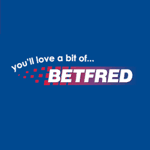


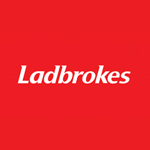

 ;
; ;
;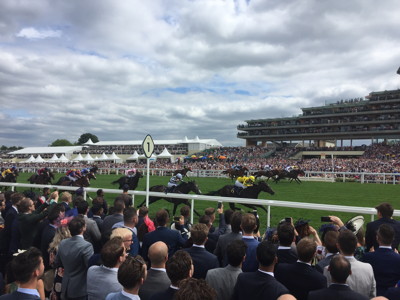 ;
; ;
;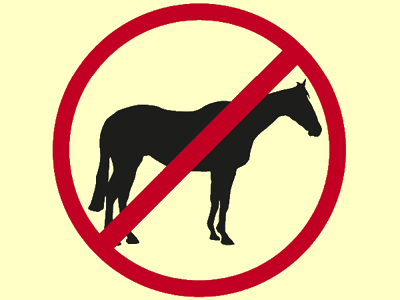 ;
; ;
;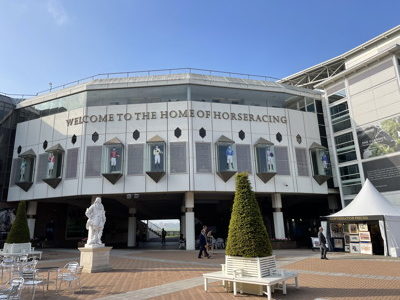 ;
; ;
; ;
;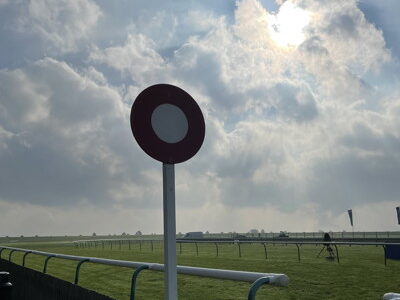 ;
;

